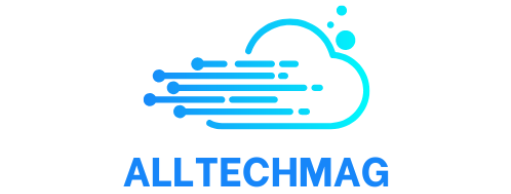The Benefits of Allowing Workers to Have Direct Deposit
Introduction to Direct Deposit
Picture a payroll process where the traditional, time-consuming tasks of printing, signing, and distributing checks are obsolete. Enter direct deposit, the electronic payment transfer from an employer’s account straight into an employee’s account. This method has become the norm in today’s fast-paced business world. Adopting a system like payroll direct deposit enhances operational efficiency and reflects an organization’s commitment to embracing technology for the betterment of its workforce. This system’s roots stretch back several decades, but its relevance has never been more pronounced than in our current digital age.
Direct deposit has come a long way since its humble beginnings, where it served as a more convenient option for government and corporate disbursements. Its evolution is marked by technological milestones that have made it possible for funds to be moved swiftly and securely across banking networks. As we delve deeper into understanding this system, it’s clear that the implications of direct deposit extend beyond mere convenience; it is a testament to the strides we’ve made in financial management and a building block for further innovations in payroll processing.
The Shift from Paper Checks to Digital Payments
A significant turning point in the development of payroll systems has been reached with the switch from paper checks to digital payments. Once ubiquitous in transactions,paper checks have drastically declined due to the compelling advantages of direct deposits. The traditional paper method was time-consuming and prone to physical damage and loss, which could increase a business’s financial risk and operational burdens.
Moreover, environmental considerations are necessary to pay attention to. Using paper to produce checks contributes to waste and deforestation while incurring additional expenses for businesses in printing and storage. In contrast, the digital nature of direct deposits aligns with the global shift toward sustainability. As we recognize the need for more eco-friendly practices, adopting paperless payment methods becomes a conscious choice to reduce our environmental footprint.
Enhancing Employee Satisfaction with Direct Deposit
Employee contentment is rooted in many factors, including the timely and convenient receipt of wages. Direct deposit addresses these concerns by depositing funds automatically, ensuring employees have prompt access to their earnings. The advantages extend beyond mere convenience; they signify respect for personal time and remove the stress associated with check-based wage collection. Many employees appreciate the predictability and reliability of direct deposits, facilitating better financial planning and peace of mind.
This level of appreciation can cascade into broader benefits for any organization, such as reducing turnover rates and fostering a more engaged workforce. Employees perceiving their employers as considerate of their needs can promote a more harmonious workplace and strengthen the company culture. These intangible benefits may be challenging to quantify, but their impact on the morale and cohesiveness of ateam must be noticed.
Direct Deposit as a Time-Saving Tool for Businesses
The administrative efficiencies of direct deposit for businesses are remarkable. By transitioning to an electronic system, companies can reduce the person-hours typically associated with manual check processing. It encompasses everything from printing and signing checks to addressing and resolving inevitable errors from dealing with physical documents. The time saved can then be reinvested into strategic business initiatives or improving other operational areas.
Additionally, since electronic records are more accessible to track and maintain than paper checks, direct deposit streamlines the reconciliation and auditing. With these systems in place, the month-end financial close can be accelerated, providing a moretransparent, real-time picture of a business’s financial health. In this way, direct deposit is not just a payment solution but a tool for enhanced financial oversight and strategic planning.
Security Benefits of Direct Deposit for Both Parties
A paramount concern for any transactional process is security. Direct deposit mitigates several security risks associated with traditional checks by leveraging advanced encryption and banking security protocols. These electronic transfers are heavily guarded against interception, making unauthorized access to funds far more complex.
From an employer’s perspective, direct deposit reduces the chances of fraud inherent in check distribution, such as the forging or altering checks. Employees benefit by not having to carry physical checks, which takes the risk of theft or loss. The electronic trail provided by direct deposit makes it easier to trace funds, resolve discrepancies, and assure both parties of the transaction’s integrity.
Understanding the Direct Deposit Setup Process
Companies must carefully manage the direct deposit arrangement to guarantee a seamless shift. Starting with employee enrollment, businesses must obtain their staff’s authorization forms and banking details. This step requires Establishing confidence and ensuring personal data is handled securely and confidentially.
Employers must then coordinate with their banking institution or payroll provider to ensure the direct deposit system integrates seamlessly with their existing payroll processes. It requires setting up company bank accounts correctly, testing transactions, and confirming that all systems are compatible with the direct deposit software.Although the setup may seem complex initially, the long-term benefits far outweigh the momentary effort required to establish a more progressive payroll solution.
Financial Institutions and Direct Deposit: A Synergistic Relationship
Direct deposit does not exist in isolation; it requires the cooperation and support of financial institutions. Banks and credit unions have evolved their services toaccommodate this method of transactions, ensuring they can handle the large volume of electronic fund transfers that direct deposit embodies. Financial institutions offer tools and services, such as online banking portals and mobile apps, to facilitate direct deposit management for businesses and their employees.
The result is a harmonious relationship that accelerates the payroll process and enhances financial management for all involved. As businesses grow and financial transactions become more complex, a dependable bank supporting direct deposit can be a valuable asset. This relationship is about functionality and financial advice and support as businesses navigate the intricacies of the modern economic landscape.

